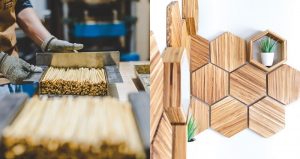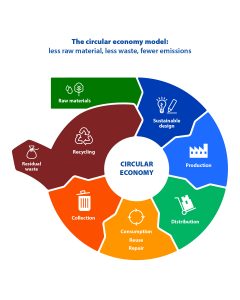As a native Vancouverite who spent his entire 23-year life here, my favourite food is obviously Sushi. What many people don’t know about me is that my uncle moved to Japan before I was born and as a result, I have half-Japanese cousins who live in Tokyo. When I was 12, I got the chance to visit them and finally learned how to properly use chopsticks. From then on, when I went to one of Vancouver’s many famous Asian restaurants, I never had to worry about eating my food – until I started to worry about what happened afterwards…
Metro Vancouver goes through approximately 100 thousand pairs of single-use disposable chopsticks every single year. In the past, most of these ended up contributing large amounts to landfills, not just in Vancouver, but around the world. Luckily, most of the disposable chopsticks used are made from wood meaning they can be composted. However, even if composted properly, they often take a long time to decompose, which can negatively impact soil composition. Additionally, this still causes the issue of deforestation due to the large-scale demand for chopsticks.
One company working to solve this is ChopValue, which was started by UBC alumni Felix Böck. Felix had 15 years of experience in the bamboo and wood industry prior to starting his company. When he learned that 0.015% of all the world’s total waste was made up of just small chopsticks, he knew something had to be done. ChopValue is a franchise model that takes used chopsticks and turns them into something new. Specifically, it partners with local businesses, collects chopsticks in a special bin to separate it from other waste, then sorts, cleans, and presses them using high pressure and heat to create furniture and home decorations for sale. ChopValue recently surpassed 100 million chopsticks collected worldwide and have been B Corp certified over the last few years.
that 0.015% of all the world’s total waste was made up of just small chopsticks, he knew something had to be done. ChopValue is a franchise model that takes used chopsticks and turns them into something new. Specifically, it partners with local businesses, collects chopsticks in a special bin to separate it from other waste, then sorts, cleans, and presses them using high pressure and heat to create furniture and home decorations for sale. ChopValue recently surpassed 100 million chopsticks collected worldwide and have been B Corp certified over the last few years.
 ChopValue is one example of the emerging push towards the circular economy, which the World Economic Forum estimates to be a $4.5 Trillion industry by 2030. Using the circular economy, ChopValue goes beyond simply reducing waste in the world by creating something long-lasting out of it. Additionally, they can save virtually all their material costs given their main resource would otherwise be disposed of. Next time you eat out in Vancouver, know that you too can reduce your environmental impact, one pair of chopsticks at a time.
ChopValue is one example of the emerging push towards the circular economy, which the World Economic Forum estimates to be a $4.5 Trillion industry by 2030. Using the circular economy, ChopValue goes beyond simply reducing waste in the world by creating something long-lasting out of it. Additionally, they can save virtually all their material costs given their main resource would otherwise be disposed of. Next time you eat out in Vancouver, know that you too can reduce your environmental impact, one pair of chopsticks at a time.
Sources:
https://chopvalue.com/en-ca
https://chopvalue.com/en-ca/pages/franchising
https://ellenmacarthurfoundation.org/topics/circular-economy-introduction/overview
https://www.cbc.ca/news/canada/british-columbia/ubc-student-turns-thousands-of-chopsticks-into-table-tops-1.3763813
Are Chopsticks Recyclable? (And Are They Compostable or Biodegradable)